

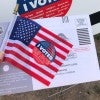
Recent research from the Kinder Institute suggests more than 6 in 10 eligible voters in Houston are expected to vote in the upcoming election. But if past turnout trends and our data are valid guides, we are looking at another election in which the voices of young adults and Hispanics will be underrepresented.
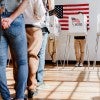
Voting Intention and Election Concerns in Advance of the 2024 U.S. General Election
This study explores people’s intention to vote in the 2024 U.S. general election.
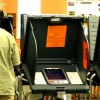
Voter registration data shows where Houston may have gaps
When it comes to potential voter strength, not all areas of Houston are the same. More densely populated areas generally have more registered voters, and some areas have fewer registered voters than they could have if every adult were accounted for.
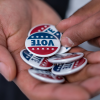
Election 2023: Overview of Residents’ Policy Preferences
This study surveyed Houston residents about their views on a variety of policy and budgetary solutions related to crime, infrastructure and housing challenges.
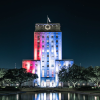
Election 2023: Priorities and Concerns of Houston Residents
This report identifies the city's current challenges and opportunities and what issues residents would like to see the next mayor address.

Amid all the high-profile constitutional amendments in this year’s Texas election (no COVID restrictions for religious services, property tax breaks for families of veterans and the disabled), one seemingly nerdy amendment stood out as important for urban and suburban areas such as unincorporated Harris County. That was Proposition 2, which allows counties to issue tax-increment bonds for transportation and other infrastructure.
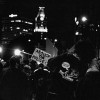
Two ballot measures—and no change to policing in Austin and Minneapolis
Roughly one and a half years after George Floyd’s murder and the global protests that followed, local votes affecting local police forces came to the ballot box last week. In Austin, Proposition A would have mandated higher police staffing levels, but it failed by a very large margin, with 69% of voters rejecting the measure. Farther north in Minneapolis, a more narrow but still decisive vote rejected the disbandment of the Minneapolis police department (56% opposed).

What Seattle and Boise got right about Hispanic representation in city politics
Houston, Boise, and Seattle share a strong-mayor form of government, and its voters tend to favor progressive-leaning candidates. But these two majority-White cities have lifted Hispanic candidates into office in recent years, while representation has dwindled in Houston.
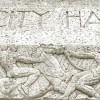
In 2011, Houston created a district to boost Hispanic council representation. What happened?
In November 1979, Houston City Council went from being almost exclusively male and white to being dramatically more diverse, literally overnight, as voters elected the council’s first two women and its first Mexican-American, and tripled the representation of African-Americans. The new council was also on average 10 years younger. It was a new day in city politics—thanks to federally required reforms that led to single-member districting—and Houston never looked back.
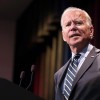
Here’s how the Biden administration will be a boost for American cities
From an eviction moratorium to support for infrastructure, transportation and affordable housing, there are many moves President Joe Biden may make that will benefit cities. Here’s a look at some of them.

Texas’ largest suburban counties are growing fast, but are they growing less reliably Republican?
In the past three decades, the populations of these counties near Houston, Austin and Dallas have tripled in size, become less white and shifted politically. Here’s a closer look.

Playing on fears of crime and poverty by playing up the myth of the suburbs
The image of the suburbs as being home to only white and wealthy residents whose ‘suburban lifestyle dream’ is being threatened doesn’t square with the reality of American life in 2020. Half of Black Americans live in the suburbs, which are much more diverse — both racially and economically — than many urban areas.

The Black Church has been getting ‘souls to the polls’ for more than 60 years
At Black churches up and down the U.S., religious slogans have been supplanted with another message in the run up to Nov. 3: Vote!
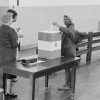
I vote because my father and grandfather couldn’t
Roland B. Smith Jr. is from Washington, D.C., whose residents weren’t allowed to vote in a presidential election until 1964. Growing up, his mother would travel almost 500 miles by bus or train from D.C. to Asheville, North Carolina, where she grew up, just to vote. Roland B. Smith Jr. always votes.
Physical Address
Rice University
Kraft Hall
6100 Main Street, Suite 305
Houston, TX 77005-1892
